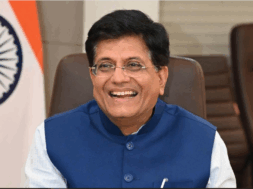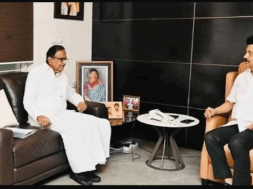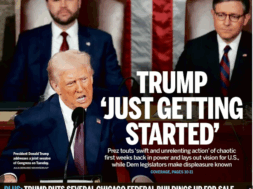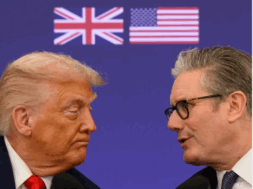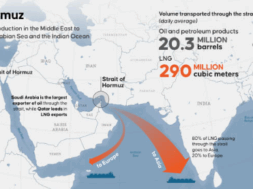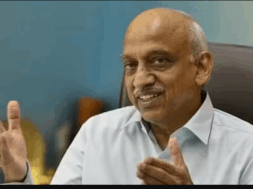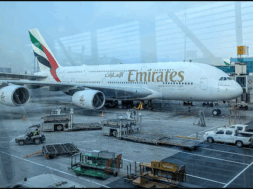
Roving Periscope: G-7 leaders to squeeze frozen Russian assets to pay Ukraine
Virendra Pandit
New Delhi: The Group of Seven (G-7) will tap the Russian central bank’s frozen assets worth USD 322 billion (300 billion euros) to raise a loan of USD 50 billion for war-ravaged Ukraine, the media reported on Friday.
In 1992, the UN Security Council similarly authorized a measure to seize frozen Iraqi assets and direct them to compensate the victims of Baghdad’s invasion of Kuwait.
Quoting European Council (EC) President Charles Michel, CNBC reported that “Russia has to pay.” His statement came after the G-7 leaders of major democracies agreed in principle to issue USD 50 billion in loans for Ukraine which are backed by the profits of frozen Russian assets.
In the past, Russia has denounced this move, warning of ‘dramatic’ consequences if the West goes ahead with this proposal.
But European nations, not the US, which spearheaded the move, might be afraid of Russia’s retaliation: Moscow can simply turn off their oil and gas pipelines on which their economies hugely depend. If the US wants to bleed the Russian economy, Moscow can as well bleed Europe’s.
The controversial proposal will face legal hurdles and must be backed by European nations, where most of the frozen Russian assets are held.
The G-7 comprises the US, Canada, UK, France, Germany, Italy and Japan. Its three-day Summit began on Thursday in Italy. Indian Prime Minister Narendra Modi has also been invited by his Italian counterpart and host Giorgia Meloni.
The Annual Summit comes as most of the G-7 leaders face their own domestic upheavals including national elections and falling approval ratings. Only Italian PM Giorgia Meloni is riding high in the polls after her nationalist party Fratelli d’Italia’s success in the European Parliament elections last weekend.
On Thursday, US President Joe Biden publicly announced the “significant outcome” of the G-7′s consensus at a press briefing with his Ukrainian counterpart Volodymyr Zelenskyy sitting beside him after the two leaders signed a 10-year bilateral security agreement, the media reported.
“I’m very pleased to share that this week the G-7 signed a plan to finalize and unlock USD 50 billion from the proceeds of those frozen (Russian) assets, to put that money to work for Ukraine, (in) another reminder to (Russian President Vladimir) Putin that we’re not backing down,” Biden said.
Apart from Moscow’s protest against the move, the legality of setting such a precedent has also been questioned. While Russia has been cut off from its frozen assets, it still retains ownership. A lengthy judicial process would have to be undertaken for their forfeit — but the profits generated by the seized assets are more readily available.
“There is a blatant violation of international law, there is a blatant aggression against Ukraine. (Russia) is the aggressor, there is a victim, there are rules at an international level. They have to pay,” Michel said.
“And that’s why … this money is blocked, that’s why this money is frozen, and I am very confident that we can use this money to support Ukraine because it is fair.”
Michel said that G-7 allies can finalize the deal’s details “in the weeks to come” to make the funds available for Kyiv at the earliest and noted that “50 billion euros in addition for Ukraine, it means more military equipment and more capacities and capabilities for Ukraine to defend themselves and to defend our common European values.”
US Treasury Secretary Janel Yellen hinted that further loans secured against the interest accrued by Russian frozen assets could be forthcoming.
“This is the first tranche and if necessary, there’s more behind it,” said Yellen, who has been actively involved in negotiating the agreement. “We’re getting Russians to help pay for the damage that it’s caused.”
Russia’s full-fledged invasion of Ukraine has since February 2022 demolished settlements and key infrastructure in Ukraine, amid persistent aerial bombardment. The World Bank estimated that USD 486 billion will be required to cover the reconstruction and recovery of Ukraine over the next decade — with costs likely to have increased since this assessment.
Increasingly, Kyiv’s allies have come to accept that war must come before peace in discussions about Ukraine’s reconstruction. That is, the West must arm Ukraine to make the conflict expensive and long-drawn, forcing Russia to the negotiating table.
“I think if we want to make possible the rebuilding of Ukraine as soon as possible, we need to provide more air defense systems, this is a top priority,” Michel said. “And today it is also an important decision, how we can provide more support, more military equipment to the Ukrainians, including in the field of air defense.”
A formal G-7 statement is expected at the end of Friday, crowning a two-day summit in Borgo Egnazia in Puglia, Italy, which welcomed top EU officials, including Ursula von der Leyen, the President of the European Commission, and several heads of state and global organizations.


